#part of the objectify men campaign
Explore tagged Tumblr posts
Text
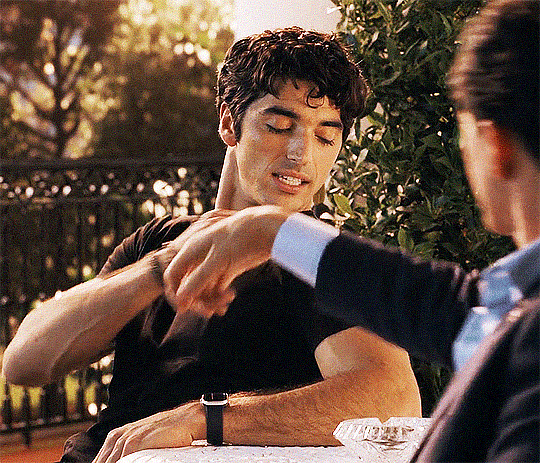
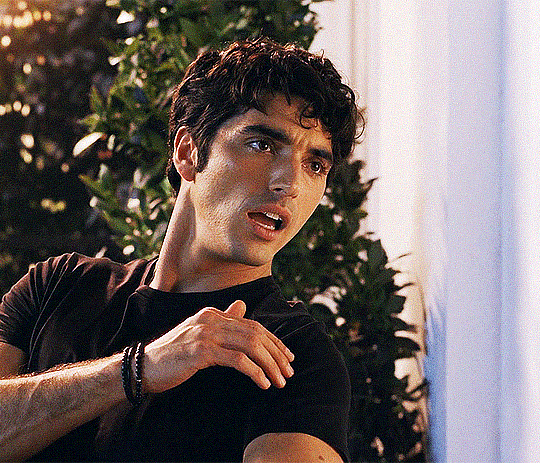
alex ft the Black T-shirt
#part of the objectify men campaign#he looks so good so what a fun clip to practice coloring on#the shirt the big brown eyes the eyelashes the biceps the titzp#rwrbedit#red white and royal blue#alex claremont diaz#taylor zakhar perez#rwrb#my edit
634 notes
·
View notes
Text
the trophies for re8 suck, not only bc the mercenaries one is so hard to get, but also bc why tf is there a close combat only option when there are so many exceptions (the pipe bomb once, heisenberg, chris section, miranda at one point) ?? like the trophy is not conducive to the narrative you've created - either make a different game or make a different achievement. same w the 'fewer than four healing items' (i used zero hehe... unless we count the times ethan automatically uses it in a cutscene), like make it zero if that's possible or don't do the trophy. god, they're just being lazy w this. like, knife only made sense for REmake, so did no saves, no heals. (also, the re2r one that was like only x amount of steps was cool af bc it was original). like, everyday, i appreciate REmake more and more bc it doesn't force you to use certain weapons and there aren't a ton of cutscenes and files, it's super puzzle heavy, and i think manual saving adds a challenge (also not having an item box in other games suckssss).
hearing ppl say they might re-remake that one makes me so like ughhh!! that's the one perfect game you made!!! leave it alone!! (they need to at least remaster code veronica tho so i can play it. rn it's too hard for me, i've tried, but i'm highly interested).
i do not fear the re5 remake tho bc there is no way that you can make that game worse. the only good thing was that sheva was a good character (and hot, sorry i hate objectifying women, so let me just say she is v beautiful, most respectfully)
also, they fucking took the personality straight out of leon in re4r!! (haven't played the full og bc the controls pmo but i've seen so much of it and it's like ...he was so cunty and fun!! i hate that they're like 'no, he's a different guy now' like idk if they were like we need to take out the 'misogynistic dialogue' (which is stupid bc, like, that's how men act and the joke is always on him. like 'sorry, following a lady's lead just isn't my style'. he looks like the dumbass he is after saying that and i like that he kinda sucked. it was funny when he flirted w hunnigan!!)
i will admit, re2r (i have not played the original), while the dialogue (particularly in claire's campaign) is weak, the gameplay is really fucking good.
it's also like ughhh esp after playing sh2r and thinking it was v good and then playing sh2 og and seeing that they kept the whole thing the same but just made it better !! and like fuck konami (particularly for the PT incident, but also like, put your fucking games somewhere, piracy is a hassle... i would know... in minecraft, allegedly, of course). moreover, akira yamaoka just came back and made better versions of the same songs like i was torn about promise og and remake but now i'm like fuckkk the guitar does add something at that one part, like i just need it. i also think it was a good decision to make james attractive, but i doubt that's an original opinion (i'll explain later).
#me talking about every resident evil game#i should talk about my re opinions more often bc i do play all of the games p much#even revelations which was so fucking awful#worst map ever#the plot genuinely still does not make sense to me#i played the game#and i don't understand#rev2 was okay tho#moira w the crowbar#love when they let you use weapons like that
11 notes
·
View notes
Text

So I read through the entire 80 page complaint, which can be found HERE. I tried to make this as easy to read and follow through as possible - hence the bullet points vs long paragraphs. This is a bit long, but I wanted to tell the full story while doing this deep dive.
What is the lawsuit about? (Part 1/3)
This complaint/lawsuit is about both sexual harassment and the crisis management campaign that Justin Baldoni and his team launched against Blake Lively. The proof that so many people initially believed him proved how successful this was.
This complaint is against Justin Baldoni, Wayfarer Studios, Jamie Heath (producer and co-owner of the studio), Melissa Nathan (PR crisis manager), Jennifer Abel (Justin's publicist), and more.
The filming of this movie was halted during the strike in the summer of 2023, and during this time Blake Lively and other cast and crew "experience invasive unwelcome, unprofessional, and sexually inappropriate behavior by Baldoni and Heath". Because these two held all the leadership positions, they answered to no one and brushed off and ignored any concerns that anyone expressed.
Baldoni also ignored established industry protocols while filming intimate scenes and exploited the lack of control on set to behave inappropriately. He improvised physical intimacy scenes with no intimacy coordinator. He filmed these scenes over and over again, beyond what would be required on a normal set.
Blake signed onto this movie before a lot of graphic scenes were added (later removed), but when she objected to the scenes originally Baldoni claimed to have added them in to make this movie through the female gaze.
During the filming of the birthing scene, Baldoni pressured Blake to do the scene fully nude by claiming it wasn't normal for women to wear their hospital gowns while giving birth. Mind you, there was no nudity in this scene in the script, her contract, or previous creative discussions. Blake felt forced into a compromise where she was nude from the waist down. During the filming of this, Blake was shown images and videos of nude women by both Baldoni and Heath -- one of the women in the video was a wife of one of the men.
Throughout filming, Baldoni would ask inappropriate and intrusive questions to Blake. Baldoni and Heath would talk about their sexual experiences, previous porn addiction, and tried to pressure Blake to reveal details about her intimate past. There are additional things that made Blake uncomfortable, which also included Baldoni claiming he could speak to her dead father, objectifying her, etc. Justin also pushed for additional sex scenes, which Blake objected to.
Just months after Blake gave birth to her 4th child, Justin went behind Blake's back and reached out to her personal trainer. He claimed he needed to lift Blake in an upcoming scene -- a scene which never existed. This attack on her weight reportedly humiliated Blake.
Blake attempted to set boundaries and decided to have a meeting with production of the movie, which included Baldoni and Heath, and several other people. During this meeting Blake requested no more showing nude videos/images of other women to Blake, no more talk of porn addictions, no mentions of the cast and crew's genitalia, no more touching or sexual comments, no more talk on Blake's weight, and no mentioning Blake's deceased father. At the end of this meeting, all of this was reportedly agreed to. However, this wasn't the case and everything they supposedly agreed to was violated or ignored -- this is the catalyst for the complaint.
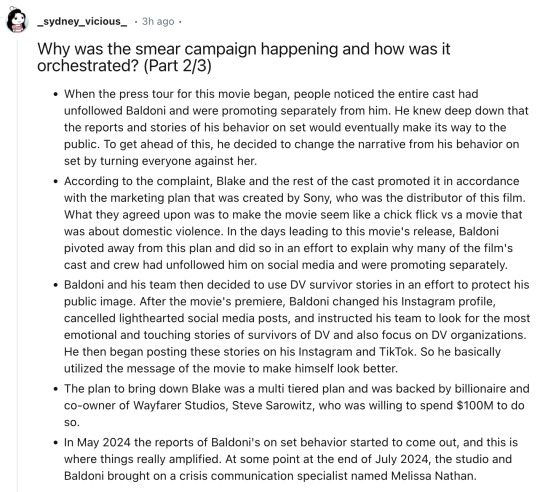
Why was the smear campaign happening and how was it orchestrated? (Part 2/3)
When the press tour for this movie began, people noticed the entire cast had unfollowed Baldoni and were promoting separately from him. He knew deep down that the reports and stories of his behavior on set would eventually make its way to the public. To get ahead of this, he decided to change the narrative from his behavior on set by turning everyone against her.
According to the complaint, Blake and the rest of the cast promoted it in accordance with the marketing plan that was created by Sony, who was the distributor of this film. What they agreed upon was to make the movie seem like a chick flick vs a movie that was about domestic violence. In the days leading to this movie's release, Baldoni pivoted away from this plan and did so in an effort to explain why many of the film's cast and crew had unfollowed him on social media and were promoting separately.
Baldoni and his team then decided to use DV survivor stories in an effort to protect his public image. After the movie's premiere, Baldoni changed his Instagram profile, cancelled lighthearted social media posts, and instructed his team to look for the most emotional and touching stories of survivors of DV and also focus on DV organizations. He then began posting these stories on his Instagram and TikTok. So he basically utilized the message of the movie to make himself look better.
The plan to bring down Blake was a multi tiered plan and was backed by billionaire and co-owner of Wayfarer Studios, Steve Sarowitz, who was willing to spend $100M to do so.
In May 2024 the reports of Baldoni's on set behavior started to come out, and this is where things really amplified. At some point at the end of July 2024, the studio and Baldoni brought on a crisis communication specialist named Melissa Nathan.
PART 3/3
Melissa gave Baldoni a proposal, which included full Reddit, full social media account takedowns, and engage with audiences in the right way by starting threads of theories -- all of which she claimed would be untraceable. She described the plan was to engage in social media mitigation and proactive fan posting to counter the negative as well as social manipulation. This plan was broken down by various scenarios based on what Blake would do....after all, they were waiting to see if she would mention anything about Baldoni's behavior, etc. Based on what she said is how they would proceed.
What Melissa proposed is something called astroturfing -- which is the practice of publishing opinions or comments on the internet and making it seem like it comes from ordinary people in the public, but actually comes from a party or a group.
My theory on how they did this, using Reddit as an example. There are websites where you can buy accounts with high karma that can post threads/comments if you pay them. Once the thread is posted, you can buy additional upvotes and awards for it so that the thread goes "viral". My personal guess is that this is how it was done.
Another part of the plan is that Melissa found reporters who aren't too fond of Blake and had them on the back burner ready to go. They used these reporters to help ensure that the bad stories about Blake are broader and more well known.
Baldoni and his team would then brief people with a more robust version of their story -- executing a background approach using 3rd party advocates and off record conversations with trusted friends to depict their "truth". Targets would include popular industry newsletters (targeting industry peers, studio execs, investors, etc.) and social media (targeting Baldoni's fanbase and those of the book/film) as well as trades/ mainstream entertainment.
They wanted to highlight Baldoni, Heath, and Wayfarer's side of the story, what their truth is as it pertains to any allegations or negativity, facts based on the timeline, and issues they experienced on their end (example - lost days of shooting, consistently adhering to demands, etc). They would also mention how production members lost their jobs due to her involvement/takeover (in reality the industry as a whole was shut down due to strikes).
Another thing they did was include the numerous articles, interviews, and quotes of past colleagues who openly love working with Baldoni, and pointing to Blake's less than favorable reputation. This would include pointing people to positive commentary, quotes, interviews from colleagues and peers of Baldoni praising his work, etc.
What's interesting is one of the scenarios discussed is if Ryan Reynolds came out in Blake's defense. Melissa basically tells Baldoni to not engage with Ryan. Should a reporter need a statement then they (Melissa + team) would provide the reporters with a pre-approved statement. The statement would say something along the lines of Ryan's lack of connection to the filming and how this is an imbalance of power and attempt to strong-arm production by major A-list stars.
One of the last tactics suggested is planting stories about the weaponization of feminism and how people in Blake's circle like Taylor Swift, have been accused of utilizing these tactics to "bully" others into getting what they want.
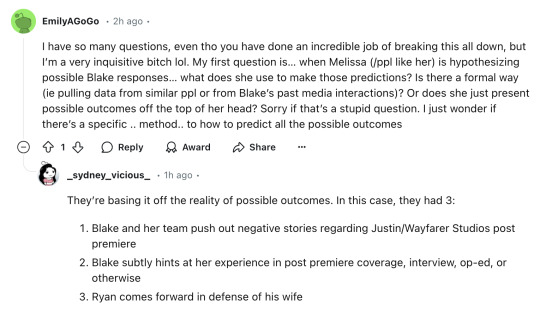
I have so many questions, even tho you have done an incredible job of breaking this all down, but I’m a very inquisitive bitch lol. My first question is… when Melissa (/ppl like her) is hypothesizing possible Blake responses… what does she use to make those predictions? Is there a formal way (ie pulling data from similar ppl or from Blake’s past media interactions)? Or does she just present possible outcomes off the top of her head? Sorry if that’s a stupid question. I just wonder if there’s a specific .. method.. to how to predict all the possible outcomes
They’re basing it off the reality of possible outcomes. In this case, they had 3: 1. Blake and her team push out negative stories regarding Justin/Wayfarer Studios post premiere 2. Blake subtly hints at her experience in post premiere coverage, interview, op-ed, or otherwise 3. Ryan comes forward in defense of his wife
2 notes
·
View notes
Text
Modern Warfare® Campaign: Biographies of the Story’s Major Players.
Part 3 (1 of 2): Farah Karim
October 03, 2019 by Call of Duty Staff

Farah Ahmed Karim
Leader, Urzikstan Liberation Force (ULF)
Farah Amhed Karim is the founding member and commander of the Urzikstan Liberation Force, battling foreign occupation since 2010. She is renowned not only for leading the resistance against enemy troops, but for establishing protective units to combat terror groups throughout Urzikstan. Under Farah’s leadership, civilian militias play a critical role in the fight to return their subjugated population to sovereignty. Her forces comprise male and female volunteer fighters with maximum age limit. Farah does not allow those under the age of 15 to take part in frontline fighting, but anyone and everyone is invited to undergo military training and join her reserves.
To protect her people from owing a debt to the world, Farah accepts only select funding and equipment from the international community, preferring to keep her forces reliant on their own for material support. Raising her army with little more than commandeered weapons and unofficial support from the SAS’s legendary Bravo Squadron, Farah says “Will is the most powerful weapon.” As a girl, in the opening salvos of the invasion, she and her brother Hadir were caught, spending their teens held as POWs by General Barkov’s rogue forces where captives were subjected to forced labor, routinely witnessing acts of chemical experimentation on fellow prisoners.
In 2009, Farah led an escape, fighting alongside a western aide unit. She vowed then to give her life to freeing her country from subjugation and chaos. When asked if women can be as effective as men in combat, Farah describes the question as sexist and objectifying. Farah wants to give women their rightful place, not only in combat, but in a society free from war. For Farah, war is more than the liberation of land. “We are also fighting to free our people from old-fashioned ways.”
Impressed by seeing females in combat and leadership roles, wives, mothers, and daughters fight without pay, food or medicine, to follow Farah into battle, Farah Karim’s modern beliefs have had far-reaching effects, and occupying soldiers often directly hunt and target her. Labeled a terrorist organization by the Russian government for their long-standing resistance, Russian soldiers are ordered to make no distinction between the terror group Al-Qatala and the liberation fighters under Farah’s command. AQ terrorists pursue Farah and the ULF with a mandate to kill.
Farah’s worldview draws a sharp line of demarcation between herself and the enemy. “The enemy has come where they are not welcomed and taken what is not theirs.” Farah refuses to stage counter-offensives or launch attacks beyond the borders of her country, believing with all her heart that what distinguishes her from the terrorists and the occupiers is never crossing the line from defender to aggressor. “We are a protective force, we are rescuers, not killers.”
#call of duty#call of duty modern warfare#cod modern warfare#cod mw19#call of duty modern warfare 2019#operator bio#farah karim#farah cod
6 notes
·
View notes
Text
i feel so inhuman lately. so objectified, and i wonder if it’s my fault.
i’m so sick of playing games with men who just don’t give a fuck about me. i’m so sick of being commodified, of being sexualized, of being on other people’s rosters. goddamn, it hurts me. no one ever looks below the surface. i just want to go home, i just want to be cared about. i feel like no one has ever looked at me and seen anything other than something that they can fuck. and god, everyone tries, and i let them because i can’t go home alone. i let them because i hate sleeping by myself. i let them because it gets so cold in my bedroom, and in my head. but my body is a barren wasteland, and i feel so empty. and god, i just want someone to see me as a real person.
i don’t want to wear lingerie anymore. i don’t want to be trapped inside this body that no one can see through. i don’t want to be one of your hoes. i don’t want you to call me when your other plans don’t work out. i don’t want to give you my number. i don’t even want to be the manic pixie dream girl that teaches you how to love again after someone else destroyed your heart. oh, brave wounded soldier let me kiss it all better! fuck this!
i’m so tired of thinking people are so interesting, so smart, so funny, so whatever - only for them to look at me and think that i’m so sexy. or they like how i look in that color, in that lighting,… i am real! i am so much more than miscellaneous body parts. i hate this body! i have worked so hard to disconnect from this body and still, it’s all you can see. i am standing in front of you with my heart in my hands! and i’m not going to give it to you, and you’re not going to reach out and grab it. i am standing in front of you with prose behind my eyes, and all you can see is my tits.
that is so heinous, so ugly. men are so evil. i am so much more than this body i didn’t ask for.
i feel so exhausted with the unavailability of it all. when did we decide it was better to lock all our feelings up in cages, fuck anything that walks, and tell no one we love them? how is it better this way? and i’m so tired of going to bars, and i’m so tired of men asking me if i know this or that band while they come up with ways to sneak into my pants. it’s so empty!! i feel so alone.
the worst part is how complicit i have become in all of it. i do nothing to stop it. i do nothing to try to prove my worth, i adamantly refuse to campaign for myself. i will not waste my breath trying to convince someone who just wants a doll that i am real. i wish so badly i could just be okay with it. i wish so badly that all i wanted was to be a sex symbol, was to be touched. but i’m so nonchalant you would never know how bad it hurts, or how pushed aside i feel. and if my facade cracks, i’ll just tank the whole thing. i’ll just tell myself you never wanted me enough times until i convince myself that i never wanted you either.
i don’t understand how my friends seem so okay with it. i don’t understand how my beautiful, loving, complicated and multifaceted friends can seem so unbothered by being so unnoticed. never forming connections, never getting used to anyone, never asking questions if the answers mean anything at all. how is this better? i go out with my friends and watch them take home men that will never give a shit about anything about them, and i do the same thing and we pretend it’s so fun? we get drunk, and we dance and smile all night, and no one ever admits to how violent this routine really is. every single morning i wake up feeling so sick with myself. how do i keep letting these people touch me? is it worse than isolation? is it healthy? is that possible? have i really fallen so out of touch with my own sense of worth that this is what i’m fucking doing? i’m fucking nauseous.
it is so easy to have sex. it is so easy to pretend that’s all you want. men love a machine. men love when you can make them laugh, and then shut the fuck up, and swallow it all. your words, your feelings, your moral compass, and anything else they can get in your mouth. men love when you love to be left. i do not love to be left! i do not love to be left!
please please please treat me like i’m real.
please please please treat me like i am more than a body.
#personal#i can’t say any of this out loud#it’s so embarrassing to admit to having feelings#hooking up with people is so embarrassing#stop trying to fuck me i am one onenightstand away from a reunion with god#like how hard is it to be like hey do you want to hang out in the daytime and do daytime things#hey do you want to make plans for sometime next week and not two hours from now?#i hope the next time i get hit on in a bar the whole place bursts into flames#i’m so serious#and how much of this is real and how much of it is religious trauma!!!! i’m doomed#leith ross is the only person who knows how i feel#but i’m not sure a connection like We’ll Never Have Sex is possible#i’m not sure that it’s real#i am only ever kissed with ulterior motives#i am only ever kissed with intention to take off my clothes#:(#performance art
3 notes
·
View notes
Text
I'm not sure if anybody has thought of it yet. But the Sydney Sweeny Dr. Squatch Campaign is probably going to be one of the worse nightmares ever. Has Sydney Sweeney set back feminism 1000 years back, probably, I'm not sure, but personally I don't care that she likes to objectify herself and capitalise on men's lust.
BUT what I want to say is this marketing campaign is so bad. Its downright horrendous if I say so. And apparently she pitched in it and thats incredibly irresponsible and disappointing. Stuff like this bathwater, stained undergarments or piss or stuff like that literally sells on the dark web. There are sick people who are going on the dark web and buying this stuff but now thanks to Sydney Sweeney's campaign we know that there are way more than 5000 people who would go ahead and buy that bathwater infused soap boldly without any shame. And I'm afraid this marketing tactic would probably expand more and more and that too very openly.
My thoughts are a lot scattered unfortunately but I would try to sound as coherent as possible.
Firstly, I would like to add a reference to the Nth case, a South Korean cybersex crime that occurred between 2018 and 2020 which was done through Telegram. In the Nth case there were around 260,000 users out of which 60,000 to 100,000 were identified, with women and including children. There were various telegram rooms in the group. So in this case there were also males trading the intimate pictures of their female relatives as well, no matter what was the age but the younger the victim was the higher was the price.
This is the same potential risk with the Dr. Squatch Sydney Sweeney campaign. For many sick perverts this could be a wonderful opportunity who would go make products to sell and possibly add something relating to their female relatives, like their could be a sick advertisement going on 'This soap contains my toddler's drool' or shit like that and unfortunately to say I beleive that there would be buyers. Like in some parts of the world currently this certain scenario is already happening.
And if I remember correctly this is not the thing limited to Sydney Sweeny, but last year Hybe put Enyphen's "professionals" clothes that they wore and sold the fabric pieces in the albums. And the thing is that stuff was sold. Companies are LEGALLY and OPENLY are ready to use BELOW THE BELT tactics to make a quick buck. I do not blame Enyphen boys to have personally any part in this considering they do belong in a weird ass company who can't bother giving two shits about their artists and working them continuously because ofcourse we definitely need Bang Shit Hyuk to have a part to blow his fragile ass ego. Like they could have gone, "Hey there is a replica of the outfit that (Enyphen boy) wore and signed and if you're lucky enough you could get this."
The main point is selling someone's private things no matter how weird or disgusting it is. Just the selling objective being the targeted audience's lust, is a landmine like territory. It's like making an already not ashamed pervert to go more bold with the fantasies.
0 notes
Text
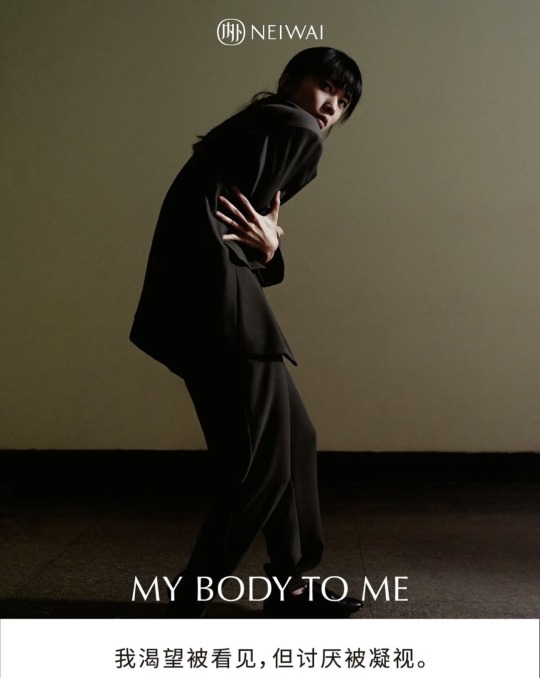
Willis Reading Response by Joyce
From the reading, one photograph that impressed me was an image showing a black woman’s nude body. Here is a quote from the reading: “One might almost say that the black woman was imagined without a head: The body is all that counts, a body offered to man’s pleasure, an extremely simplified idea in which beauty is exclusively seen as underlining the erogenous zones of breasts and buttocks. The curves are abundant, the back is sumptuous, and the hips are magnificently shaped, while adolescent breasts blossom out on a superb, exciting bust.” The author suggests that in the nineteenth century white photographers were keen on taking pictures of nude black women. The African women in the images were not seen as a whole person, but rather the photographers only cared about the women’s curved body and the sexual indication behind their bodies. African women, in this sense, were objectified. They became an object that white males gazed at, rather than a subjective human being.
The image I found that resonates with the image from the reading is an advertising photograph by a brand called Neiwai. Neiwai is a famous, new-emerging Chinese brand that sells bras and underwear. This image is part of their Women’s Day advertising campaign that was released earlier this year. The Chinese caption on the images translates as “I long to be seen, but I hate to be gazed at.” I think this image perfectly contrasts with the image from the reading. Today, as feminism becomes more and more prevalent, more and more women start to break the stereotype, turning themselves from an object that belongs and submits to men to a strong independent subject that only listens to and lives for themselves.
As a woman myself, I am surprised to see how black women were seen as objects in the nineteenth century. At the same time, I am glad to find an image in the twenty-first century that completely disagrees with the nineteenth century idea. It is good that women today can escape (or at least trying to escape) men’s gaze.
0 notes
Text
Everything here is wrong, but let's focus on a few key points. "I've been part of the problem"
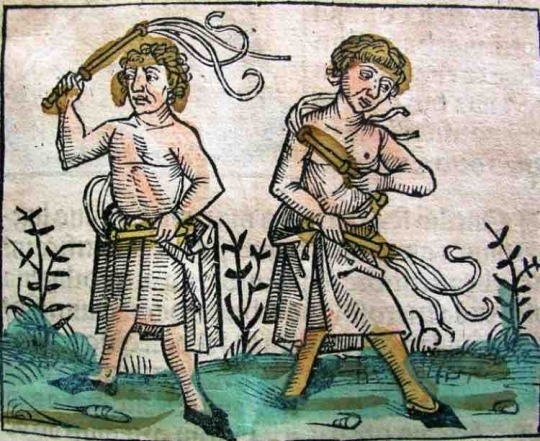
It's funny how much Feminism became just another religion, down to the confessional booth. Except it was social media and public. "I've spent countless hours looking up pictures of sexy women" So? You also drink water and breath air. How many hours per lifetime are you allowed to do things you want to do? All of them. Why is it necessary for a male feminist to apologise for being heterosexual? How is it feminists think there will be new feminists, if they successfully sabotage male sexuality?

Feminists have said they can breed without men for sixty years now. Their movement is imploding, but they are still convinced they will do it. Any day now. Any day .... "It's only recently, with the Supreme Court's disturbing rulings"
Wow, that is one fucker of a tangent. Unless it is the Supreme Court that is your fetish - hey, no judgement!

"I've realized how deeply ingrained the objectification of women is" Bullshit. If women were objectified, it wouldn't be murder to kill them. Instead, killing a woman is universally regarded as more despicable, except in the countries where The Most Feminist Religion is in power.

Desiring someone doesn't magically turn them into stuff. Being lustful is no more shameful in men than it is in women. Male feminists are either liars looking to suck up to women they could never fuck otherwise - or are no different from the flagellants of other religions, scourging the flesh to appease their gods. It's a wank or a con. Not great either way.

"women are often viewed as tools or objects" Women have owned male slaves. Is it that you have never read a book, or are you so desperate for the pussy that you knowingly lie?
youtube
The Feminist rewrite of history has the Dahomey as the brave anti-slavery campaigners, fighting the evil whitey who wants them to keep taking slaves. The truth was the opposite. The woman depicted was perfectly happy to make men into chairs. She literally objectified men, women, and children. And the British men fought wars against that; fought against objectification. And died for that belief in freedom.
Reality is almost exactly the opposite of whatever Feminists say it is.
"We need to celebrate the beauty that comes in every shape, size, and color." No. No, we don't need.
If you say you find all women beautiful, I say you're lying. You have preferences. SO DO THEY.
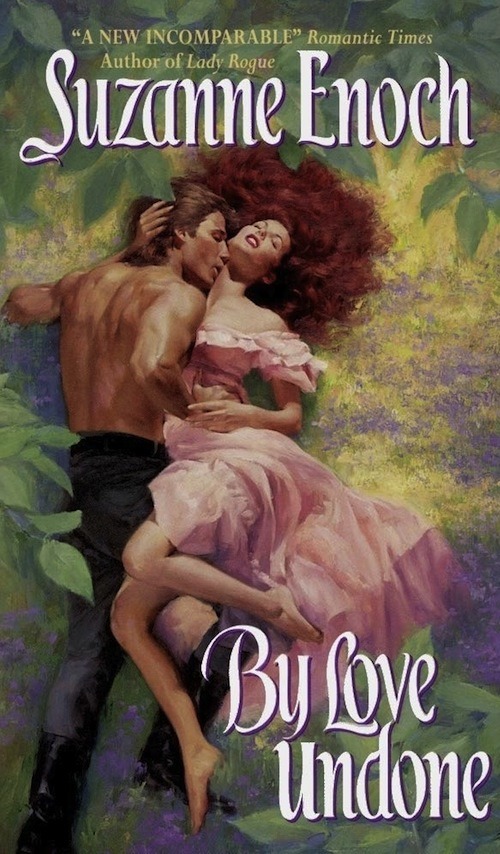
Hell, thanks to dating apps, we can see the numbers. Even before then, romance novels were a dead giveaway. Women want tall, well-built, handsome men with little body fat, high social status, and preferably a decent package.
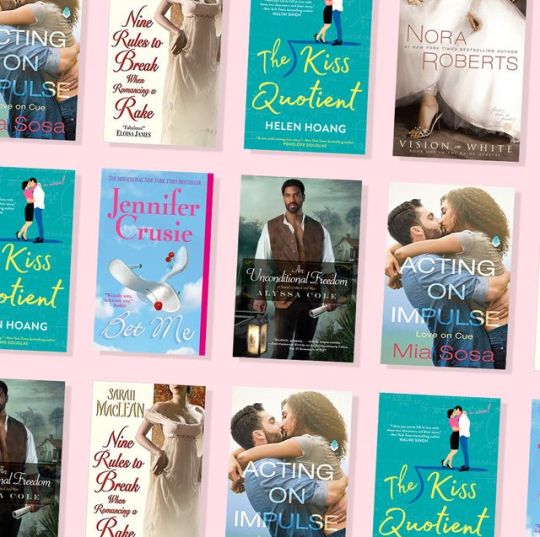
Female erotica has very little diversity. It is made by and for women, and is the most successful genre of fiction.

There's not a lot of it centered on average looking men.
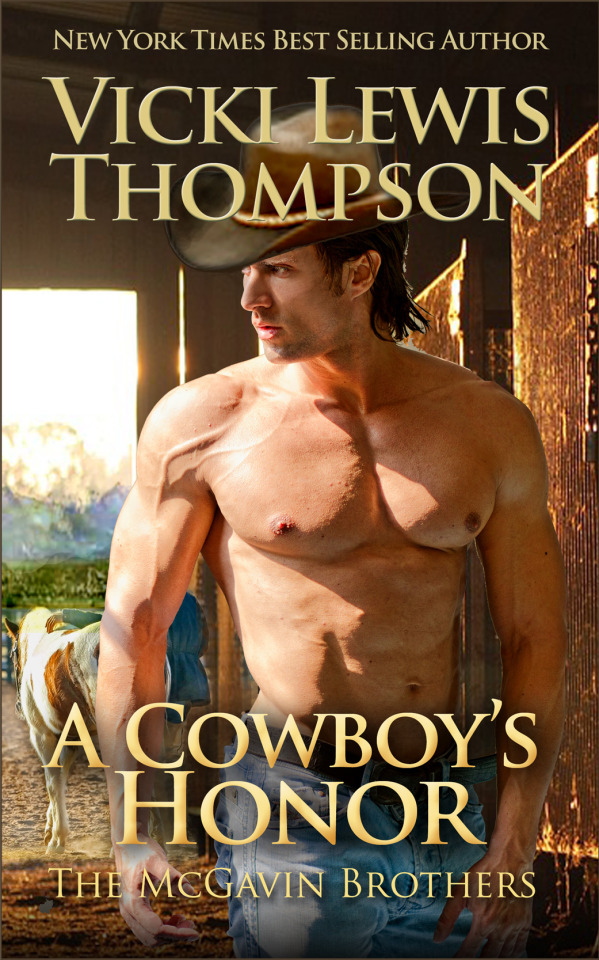
This look is achieved by steroids and dehydration. It's actually downright dangerous for a man to try and look like this.

Men and women have impossible fantasies. That's life; get over it.
Forced to be Toxic and Unreal
I'll be honest, I've been part of the problem. As a white American heterosexual male, I've spent countless hours looking up pictures of sexy women, mindlessly scrolling through same homogenous images of women: large breasts, tiny waists, flawless skin, and vacant expressions. It's only recently, with the Supreme Court's disturbing rulings and the vitriol surrounding them, that I've realized how deeply ingrained the objectification of women is in our culture. It's a sickening truth that women have been shouting for decades, while many men, myself included, have turned a blind eye. It's easier to believe in a fair world, a meritocracy, than to confront the uncomfortable reality that women are often viewed as tools or objects, not fully human.
This distorted perception seeps into every aspect of our lives, from casual conversations to the highest levels of power. It's in the filters and algorithms that bombard women with impossible beauty standards, erasing their pores, smoothing their wrinkles, and chipping away at their self-worth. It's in the endless stream of AI-generated images that present a single, narrow vision of beauty, denying the kaleidoscope of shapes, sizes, colors, and abilities that make up the human experience.
This lack of diversity isn't just an aesthetic issue; it's a reflection of the deep-seated biases that permeate our society and our technology. AI, with its infinite creative potential, is being used to regurgitate the same tired tropes, reinforcing the harmful idea that women's worth lies solely in their adherence to an unrealistic ideal. This lack of imagination, this inability to see beyond a single, narrow definition of beauty, is a symptom of a society that equates emotions and vulnerability with weakness, a society that teaches boys to suppress their creativity and conform to rigid gender roles.
It makes me wonder, how many men are endlessly searching for a partner who fits the mold they've been told they want, a fantasy that's both unattainable and ultimately unfulfilling? This pursuit of an idealized image, fueled by harmful stereotypes, distorts our perception of women and perpetuates a cycle of objectification and dissatisfaction.
This whole thing just makes me mad. We've built a world that squashes creativity, limits our understanding of beauty, and shoves these awful stereotypes down everyone's throats. It's like we're all stuck in this loop, generation after generation, men and women both getting hurt by it. We have to break free, for our own sake and for each other. We need to demand better. We need to see each other, truly see each other, in all our messy, glorious complexity. We need to celebrate the beauty that comes in every shape, size, and color. This world needs more than a fix that comes from technology. The world needs understanding, kindness, and courage to embody both as the new standards of beauty. Beauty isn't a competition; it's a spectrum, and everyone deserves a place on it.
#objectificationofwomen#bodypositivity#feminism#aiart#mediarepresentation#diversityinmedia#artificialintelligence#genderequality#unrealisticbeautystandards#selflove#bodyimage#antifeminism#Youtube
3 notes
·
View notes
Note
Honestly, I get really confused when Larries always say H hates being sexualized. If you look at it from an objective point of view, it is very clear that H and his team are using a "sex sells" marketing strategy. He's not uncomfortable being sexualized because that it literally part of their promo plan. Sex attracts attention. Hshq is using sex in their marketing to create an effective and memorable campaign and it's working. He literally advertised the album as being about being sad & sex. 1/2
“He did nude photoshoots. His music videos for lights up and WS obviously rely on the sex angle. If he built his whole image on sex appeal, then why blame harries for sexualizing him? They are doing exactly what hshq wants them to do. Them thirsting over him makes them keep streaming and giving him views. People are hardwired to notice sexually relevant information so it’s smart of his team to use that to their advantage to keep him relevant. Everyone else can see it except for larries. 2/2 + Harry never said he was uncomfortable being sexualized. He doesn’t care because it helps his career and he loves the attention. He said he was uncomfortable thinking about being seen as a sex symbol because it’s a weird thing to think about yourself but he didn't say anything about being sexualized. Anyway, actions speak louder than words, and his PR is all about catering to to people’s sexual fantasies so I think he's more than okay with it”
I’m choosing to answer this because there is.... a lot to unpack here. To start, i’m incredibly sick of seeing people pretending that “sexuality,” and “sex appeal” are the same thing as “sexualization” especially when it refers to hypersexualization. it’s not and it never has been. you can find someone attractive and have that person perform sexuality, at any level, and still not display sexualization of this person. it’s not a complicated concept. there are many facets of harry’s life that has been built to fit a lothario image that does drive off the hyper-sexualization of him as an image and a person, but it goes beyond just his team using it for fan? engagement? the media has perpetuated it as well since he was 16 years old (a child). past “girlfriends” have perpetuated it when their relationships end. talk show hosts like ellen and james corden would consistently push this angle regardless of whether or not they were friends. red carpet reporters have asked these questions directly to his face. past models who have worked with him in any capacity have helped this narrative along by moaning his name and sexualizing him. ben winston has no problem feeding into it. there’s branches that split from the whole that has fed into this goliath image that has been sexualized for ten years of his life.
and you think...... he’s comfortable with that? you think he likes that he can stand next to any woman and be plagued with stories about fucking them? you think he thrives off the fact that every part of who he is and what his body looks like is constantly on parade when tied to this image? you think he doesn’t care that much of the GP and those in the industry think he’s incredibly easy and will sleep with anyone and anything so long as he gives them a smile? you think he thought it was funny when he was visibly uncomfortable having howard stern ask if he wanted to fuck his therapist because she was a woman? you think he enjoys the fact that he has to watch out who he’s around or even nice to because so many have gone to papers or online and fabricated stories about sex or relationships for clout attached to his name? you think it makes him laugh when people talk about his sex life and publications like GQ pushed him to tell them how many people he’s slept with as a 19 yr old? you don’t think he cares that he’s lost a lot of his youth and control of his image due to sexualizing tycoons?
you also confuse me with the points you made about him playing into a hypersexualized image. you use examples that are so highly misconstrued it feels detached in every way. he didn’t do nude photo shoots. he did one photoshoot that featured a nude and the nude was not in any way put on display as an act of sexual fodder. it was sensual. it was fragile. it was soft. it was a piece of art and seeing as how you didn’t see it that way only falls more on you than it does anyone else. you can be nude and do that without inviting in ideas of sexualization. nothing about that photo screams sex appeal. regarding the music videos..... congratulations, you missed the entire point again. the Lights Up music video was meant to depict his experience with fame and sexualization. those pulling at him from all angles represents everyone wanting a piece of him as he just wants to exist. how his career and life since he was 16 was built off never being his own— he’s always been “on display” for everyone else. he not once touched any of the models, and he ended up riding away from it all at the end of the video finally free. even when talking to radio hosts about the video he touched on how personal that song was to him. yet the media and fans alike drew it differently and labeled it a sex orgy lmao. and with WS..... it’s the media that first drew the hyped up sexual energy tied to that song. the blatant headlines about oral sex which then hyped up fans. yes, they used the video to display oral sex but nothing about that video was sexualized in a way that would’ve been expected. the ones that have a right to be upset about the WS video are wlw because of how it could go about sexualizing the WOMEN not harry.
so again, stop pretending like sexuality and sex appeal is anything like sexualization. it isn’t, and just because something or someone portrays him in a “sexy” light doesn’t mean it’s okay or even appropriate to sexualize or objectify him based on that. olympic swimmers can be pictured as sexy because of the tight clothing, built bodies, and athleticism but that doesn’t green light sexualization of them. antoni porowski can show off his body and pose sensually (even sexually) and that doesn’t mean it gives you the okay to objectify him and his body. i theorize a big reason why harry is often seen in baggier clothes now, beyond his fashion sense, is because without showing any discernible part of his body, it stops those from sexualizing him on his off time. so, has HSHQ used his already laden image and sexuality to push further into this sexualization? yes. has fans been conditioned to think of him sexually because of this ingrained narrative? of course. but does that mean we’re all lab rats being fed what they want and we have no say or conscious decision in the matter? no.
many artists use sexuality and sex appeal in their art and images. men, women, non-binary folk etc., etc. but that doesn’t mean they love being sexualized or have no qualms about it. take for example, halsey. she’s never been shy or against showing her sexuality and sensuality in her work, music, and persona. does that make it okay to objectify and sexualize her just because she does that? of course not. do you hear how you sound when you say these things? it’s very concerning. i’m sick of people wanting justifications for sexualizing artists— especially harry. if this was a woman, this argument for or against sexualization wouldn’t even exist. but since it’s harry it’s okay? i’m so tired of it.
2K notes
·
View notes
Text
‘She overcame everything that was meant to destroy her.’
Women are truly incredible creatures. We have spent centuries being overlooked, downtrodden and dismissed. In some respects, we have come a long way in terms of gender equality but there are still many recent occurrences which remind us of how far we have to go.
So many female illnesses take years to diagnose or aren’t taken seriously enough when they are. Women are still having to justify why they chose not to have children. We’re still working with a pay gap. Some women aren’t considered to be women because of the body parts they were born with or without. There are still places in the world where women simply don’t and never will have the opportunities to live life on their own terms. Despite all this, we’re still out in the world making and doing amazing things and looking beautiful while doing them.
This recommendation list is really a collection of books that celebrate women, their courage, their friendships and their choices. It’s pretty varied in terms of genre and style, so I’m pretty sure you’ll find at least one book here that piques your interest. Keep being your fierce, unstoppable self and honour your girls today. -Love, Alex x
1. Dangerous Women by Hope Adams.
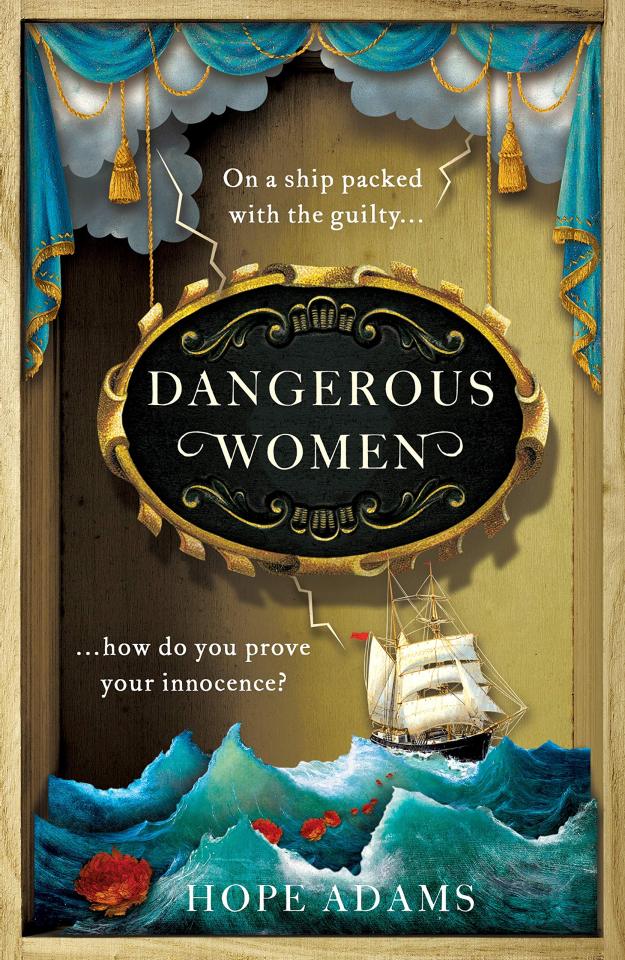
In 1841, 180 English women are on board The Rajah, a ship bound for Australia. All of them are criminals, most of them convicted of petty crimes but one of them has a deadly dark secret. Then someone is killed and the hunt for the culprit is on. But it’s hard to protest your innocence when you’ve already been found guilty. This addictive mystery is so well-researched and is based on the true stories of real female criminals aboard The Rajah. There is an overwhelming, stifling darkness, haunting the whole novel that is so atmospheric and reflective of conditions on board. It’s a story of sisterhood, female friendship and the existence of the Rajah Quilt is an example of the incredible feats that women can overcome if they work together.
2. Moxie by Jennifer Mathieu.
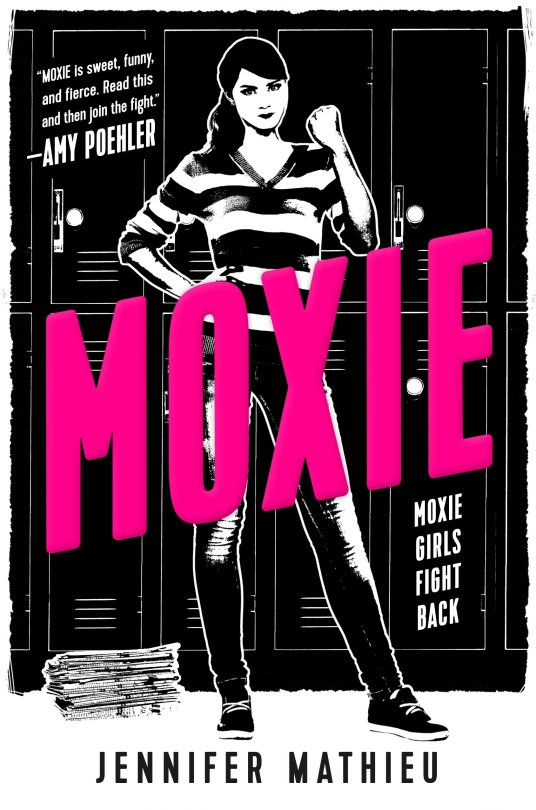
Viv is tired of following the rules at her high school and is determined to shake things up. Channelling her mum’s former punk persona, Viv creates and secretly distributes a feminist zine to her classmates, who start to take action. Cliques are abandoned as new friendships are formed and a revolution kicks off. The real sweetness about this gutsy, fierce YA novel is the fact that talking about the daily trials and tribulations that girls go through brings them together rather than divides them. There are some fantastic characters and the inclusion of male allies is everything.
3. Queenie by Candice Carty-Williams.
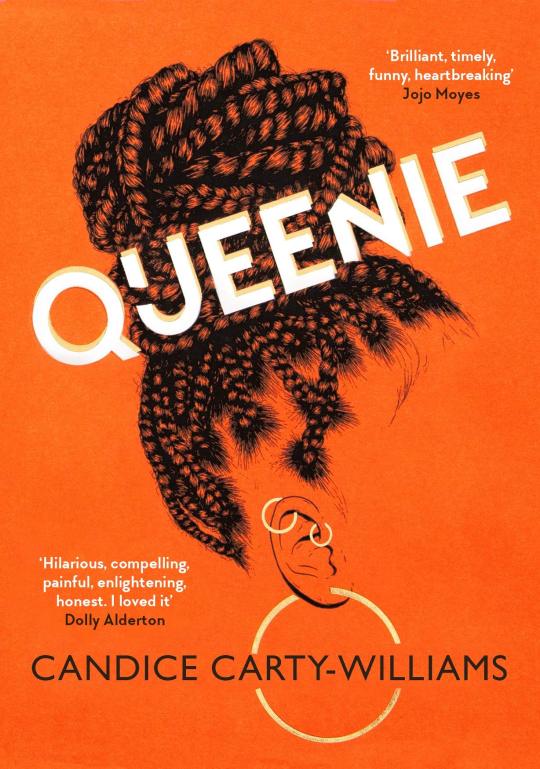
After a disastrous break up, British-Jamaican millennial Queenie embarks on a journey, riddled with bad choices, to discover what she really wants from life. Straddling two cultures, a job where she is perpetually underappreciated and an underlying mental health condition, Queenie is a relatable depiction of what it means to be a young, Black woman in 21st century London. Funny, honest and deeply moving, Queenie is an essential enlightening read with a wonderfully flawed, real woman at its heart.
4. Hag: Forgotten Folktales Retold.
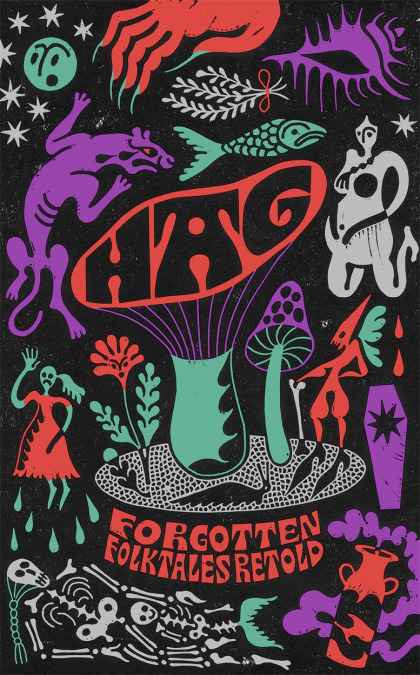
Inspired by British urban myths, this collection of spooky, fantastical stories by various female authors celebrates women in all of their guises. These stories are written by the likes of Daisy Johnson, Kirsty Logan, Irenosen Okojie, Eimear McBride and more. Some of the stories are very dark. Some of them offer powerful insights into other cultures. Some of them explore inherently female issues such as the repression of desire and motherhood. Overriding the whole collection is the wonder and power of women defying the odds and achieving their dreams. A fantastically unique read, ideal for International Women’s Day.
5. My Grandmother Asked Me To Tell You She’s Sorry by Fredrik Backman.
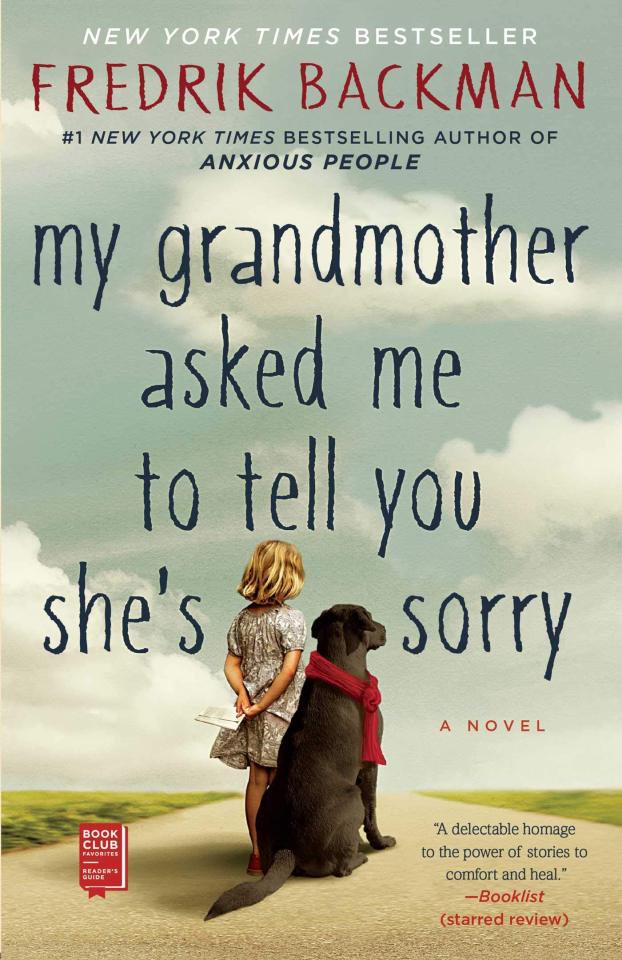
When Elsa’s grandmother dies, she discovers a series of letters apologising to the various people she has wronged. Elsa’s mission to deliver these letters leads to some strange places and a journey that leads to getting to know her grandmother in a way she never did, when she was alive. The relationship between seven-year-old Elsa and her grandmother is so beautiful and I’m sure I’ll never read another grandmother-granddaughter relationship like it. Granny is a truly formidable character and a woman who has left behind a very full, colourful life. Backman is a master at writing quirky, uplifting stories of community and this charming novel is no different.
6. Kim Jiyoung, Born 1982 by Cho Nam-Joo.
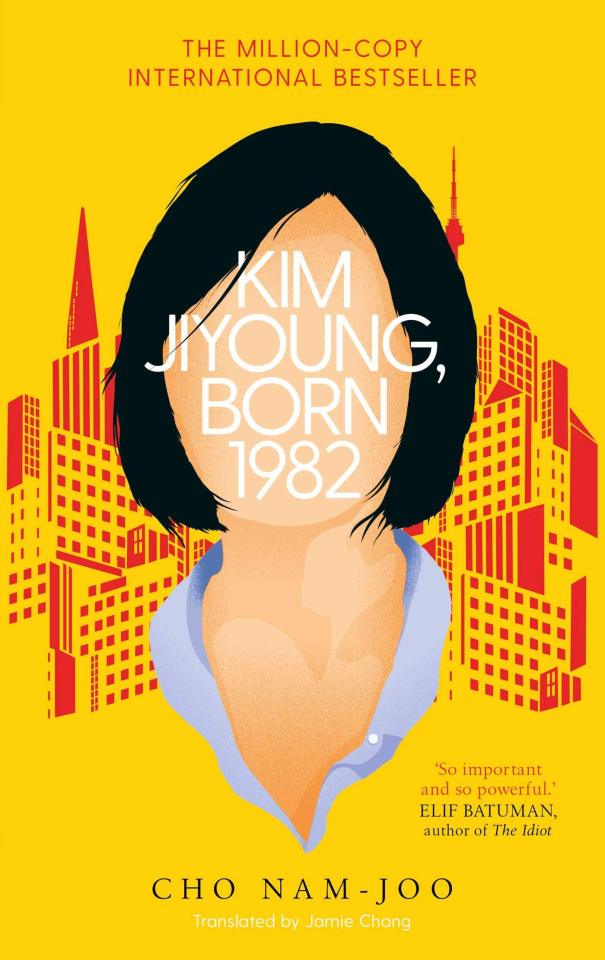
Kim Jiyoung has recently given up work to raise her baby daughter but before long, she begins displaying strange symptoms, such as impersonating the voices of other women. As her psychosis deepens, Jiyoung’s entire life is spilled to her male psychiatrist and it’s a life of restriction, abuse and control. This incredibly evocative book is a harrowing illustration of the misogyny ingrained deep in Korean culture and the devastating effects it can have on the women who live within it. A woman on the brink of insanity speaks for them all in this heavily symbolic, heartbreaking read.
7. The Shelf by Helly Acton.
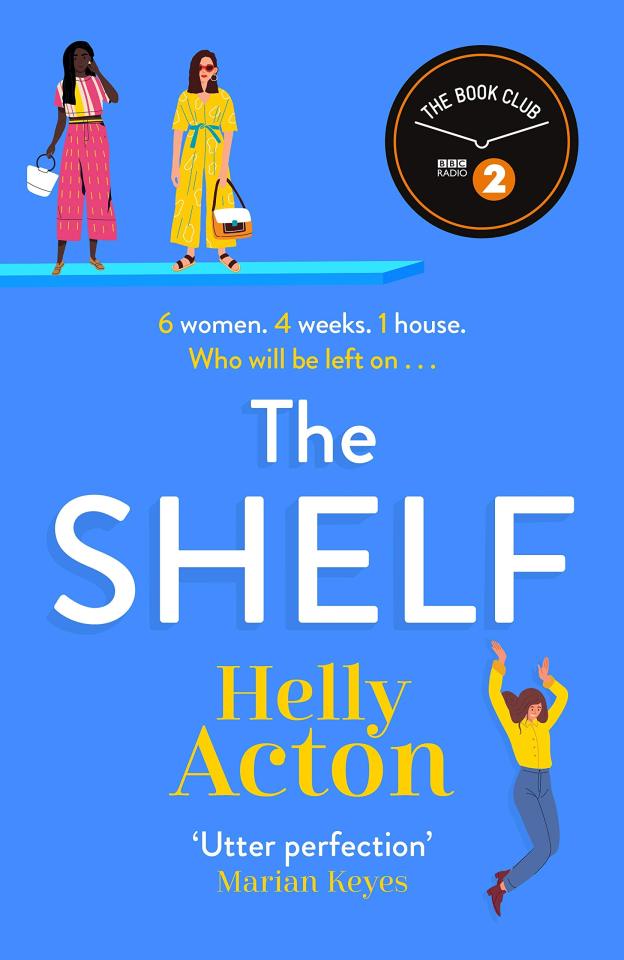
Amy is pretty sure that Jamie is about to propose, so she is more than shocked to find herself on The Shelf, a reality TV show for single women. Over the next few weeks, she and five other women must take on challenges to improve themselves and be crowned ‘The Keeper’. The Shelf is a joyful celebration of singledom and female friendship. Funny and heartwarming, it inspires its readers to never settle for second best and discover life and yourself, completely on your own terms.
8. Invisible Women by Caroline Criado-Perez.
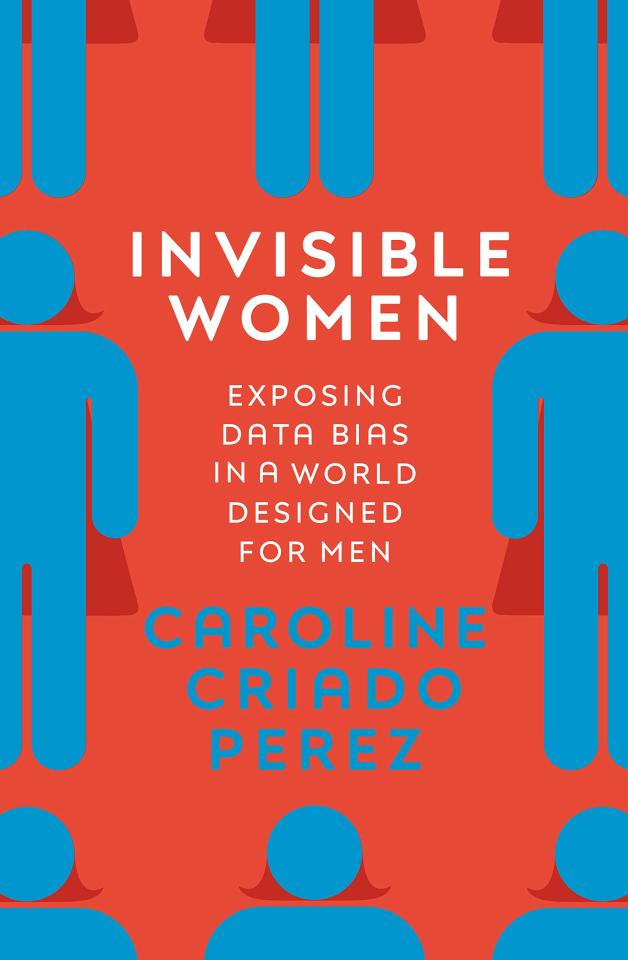
The world is made for men. Cars, phones, the medical industry, workplace laws and more areas of modern society largely ignore women. This fantastically informative manual exposes all the data biases that have been hidden from us. Caroline Criado-Perez has collated stories and case studies from across the globe that show how women’s lives and health are affected by our male-minded world and calls for drastic change.
9. A Kind of Spark by Elle McNicoll.
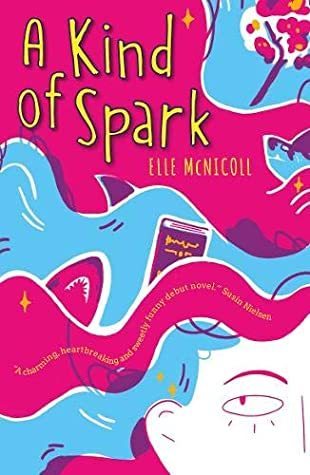
Addie has autism but she is so much more than that. When she learns of her hometown’s involvement in witch trials, she launches a campaign to erect a memorial for the women who died during them. This gorgeous, uplifting, funny middle-grade book offers a unique insight into a neurodivergent mind and simultaneously honours innocent, murdered women. You’ll get all the feels!
10. Olive by Emma Gannon.
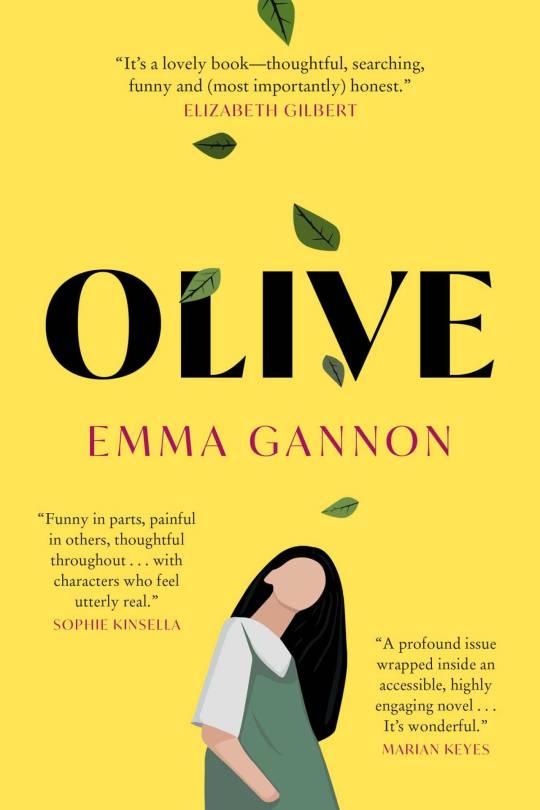
Olive’s choice to not be a mother has ended her nine year relationship and her three best friends are all at various stages of motherhood. So, where will Olive fit into their lives now? This wonderfully sensitive and thoughtful novel is a wonderful celebration of women who are child-free by choice as well as giving voice to those who have struggled to become mothers. It will speak to any woman who has ever been asked when they’re going to take the leap into that ‘inevitable’ stage of a female life -motherhood.
11. The Seven Husbands of Evelyn Hugo by Taylor Jenkins Reid.
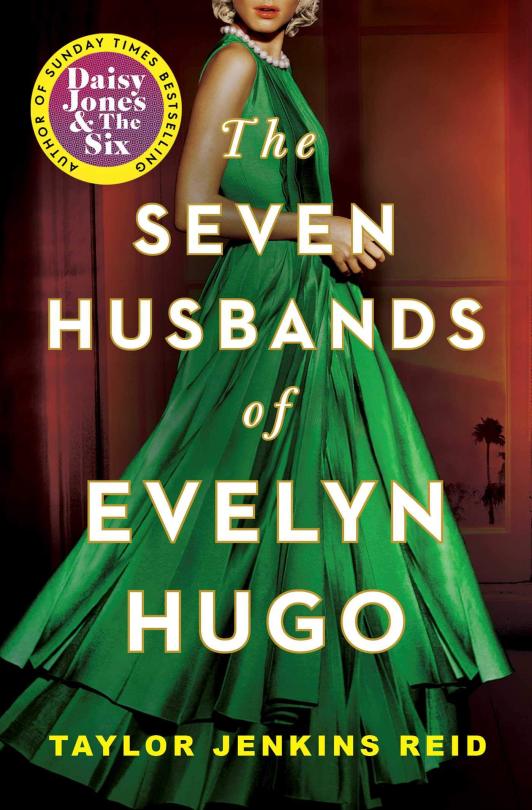
Evelyn Hugo is a retired Hollywood icon who has personally chosen struggling, unknown reporter Monique to dictate her biography to. No one knows why, not even Monique herself. Over a series of intimate meetings, Evelyn tells Monique her story; from her rise to fame in the 1950s LA to her retirement 30 years later and the myriad of romances throughout that time. In time, it becomes clear that Evelyn’s and Monique’s lives intertwine in a heartbreaking fashion. Soaring, epic and completely unforgettable, Evelyn Hugo is the story of a woman who was consistently objectified, moulded and suppressed. Ultimately, it is a story of a great forbidden love and the hell that fame can bring, especially for women.
12. The Year of the Witching by Alexis Henderson.
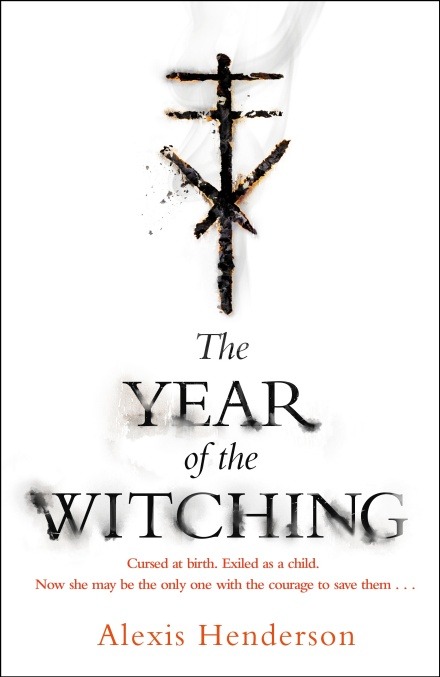
Imannuelle’s mixed heritage is sacrilege in the tiny, puritanical community in which she lives. So she does her best to obey the rules and worship the Father. However, she finds herself in the haunted Darkwood where the spirits of murdered witches roam but they have a gift for Immanuelle -her dead mother’s journal, which leads to her discovering the dark truths behind the community she was born into. This atmospheric, brooding fantasy-horror novel champions the overthrowing of control, the discovery of one’s own inner power and capabilities as well as demonstrating how women have been villified by the patriarchy for centuries, simply for leading the lives that they want to lead. An addictive, Gothic witchy treat!
32 notes
·
View notes
Text
Head canon that Gilda had to put up with numerous men and women flirting with Harvey. All the time.
Campaign raisers? Yes. Bringing him lunch after he’s taught class? Yes. Visiting him at work? Yes.
Gilda is stunning. In the comics, Harvey clearly has puppy eyes for her. Even after his transformation as Two- Face, he’s very protective of her. But, It’s a good thing she has thick skin, but there were days where she found the comments of “That’s your wife? Oh. She’s _____ than I expected or That’s Mrs. Dent?” Maybe she’d be standing near Harvey and one of the people flirting with him thought she was a cocktail waitress. Harvey wouldn’t take the shit for a moment Even though he knows his wife is strong, he still hates her having to hear such a comments and he’s frustrated that people objectify him. He’s a lawyer and a damned good one. He has a brain in his head! So I just see him slinking beside her, wrapping her hand around her waist and flirting with her or doing obvious displays of affection. (I HC that they’re private and professional for the most part with low-key PDA.)
Maybe he’d say something like, “Oh this woman? Yes, my beautiful, intelligent, creative, badass wife. Love of my life!” Before kissing her deeply on the lips. They part smirking at everyone.
Years later, she still hears “That’s Mrs. Dent? Oh.” This time - it’s usually out of pity or disgust. I HC that the same crap would continue if she and Harvey reunited - it would just be a mixture of emotions and people this time.
31 notes
·
View notes
Text
on that russell brand wap video
video starts he is bored, by his tone, with the song, cant be bothered to pronounce wap correctly, dismissive but has some insight..ok
he is more interested in what the media is saying about the song so he is being a gossip instead of an art critic off the bat but maybe he’d say social critic weak cop out with him reading the guardians definition of the video instead of what cardi and meg say or even give his own summary of the song also side note i heard the song and thought it was average and video was boring it also is weird to me we are stuck on the hamster wheel of female sexuality in rap at least like didnt lil kim foxy brown trina nicki minaj my neck my back my pussy and my crack already put a period on these convos when he says that cardi and meg are aspiring to the patriarchies values which completely duhumanizes them and takes their agency away, like they just actually enjoy their wet ass pussies and its a human value not a systematic inoculated value. so stfu there is no replicating values from males its just females getting to be female and it has nothing to do with hierarchy or patriarchy...which is revolutionary then she starts going on about TRADITIONAL VALUES so dumb , defining what men and women are generally but ignoring you cant apply averages to individuals and thats even ignoring the fact that bravery is considered male in his diatribe... then calling margaret thatcher a woman man and saying she expels male values like wtf do you hate yourself that much and see women and people who arent white as innocent pure sinless waifs....part of humanity is our potential for evil and dismissing that to sexism or racism is an insult on top of the pity conventional female values--- gagging maybe he didnt mean these things but talked about them from societies perspective but he still seems to be talking from that side---- there is nothing wrong with objectification he is a complete lunatic - you can objectify all day and still see humanity beyond the objectification - its fun to be objectified its fun to objectify its fun to make an object (art piece) of your self if that is your job as a visual artist like cardi and meg, and even if not everyone agrees objectification is good is my opinion void because it doesnt agree with yours what kind of revolution are we having here...and russell take your tattoos off then those are objects those are false idolss if meg and cardi lived in the perfect utopia that russel envisions, and wanted to express their sexuality - how would they do it without being objectified... focusing on the body or sadnesss or happiness apart from the complete humanity of someone is objectifying that one part and if we were in utopia it would still be consumed as a commodity...whats wrong with a commodity...exploitation of commodities through not paying workers or raising prices unfairly is wrong but just now the idea of commodity is wrong...isnt that video he is making to be a gossip also a commodity wap isnt doing enough cause it isnt calling out who has power in the systems that so dumb - go live in an artless world til everyone is fed then why is he wasting his time on philosophy of the mainstream people are starving out there. cardis bernie campaigning wasnt enough now her work and personal self expression needs to be exploited by your cause for revolution isnt a youtube video about as far away from a product as you can get - how is it different than making a vlog like he is doing - they both selling the product of themselves in both cases they are objectifying their authenticity its still the same aesthetic its the same values and ideals...uhhh no its not women in rap changed the definition of what men in america find attractive and in different time periods different body types were attractive cause it changes with cultures there was a womens body revolution and it has 99% percent to do with thicc women in hip hop not conforming to the "male" but i would say human standards of the 50s-80s at least
before capitilism were their women owning their sexuality...yes so its not a product of capitalism we should be aspiring to an entirely different set of values not who has the power in these values...so he is saying cause women are taking power in the same system its not a good thing and shouldnt be celebrated..i do agree with that to a degree but i also could see the power shift as a step on the way to a different value system, but also im not going to be zealot and hate on cardi and meg for not having my same level of desire for a utopia revolution or a rapture i also dont see wap as a commentary on social structures just maybe dating when you are younger power which russell was a part of, like he says as ive gotten older my values have changed, welll then maybe the same will happen for the young women doing the same shit you were doing, old and wise is only old and wise when you dont see it as a personal revelation you had instead of seeing all older people change their values to more conservative back in my day bull shit so he is scared of power and attractive to him cause, o my god these women are so beautiful, the whole video is about his own sex addiction and blaming the pretty girls for getting grabbed on what are we looking for, something fun to dance to, something to give me confidence, something to make silly videos undermining the sexuality entirely, its not just porn porn porn like he is trying to claim so fucking stupid this russell brand video is the same as the ben shapiro i aint squeamish about sex but this is not making people equal....wtf are you talking about he also wont go as far to say what the ideologies cardi and meg are fighting which im curious about ooo so now he says meg and cardi dont need to be doing anything other than commodity, admits hes puritanical, sees it through a warped lense what was the point of this video. spend 15 minutes seemingly arguing that they are being too sexual, just capitalist pawns, not radicals and will make poor russell want to packer his peepee
then say in one minute well that was all bullshit and should cardi and meg be doing something different...no so dumb
6 notes
·
View notes
Text
FGM
Back after a while so I wanted to talk about something that is overlooked or maybe not noticed at all when talking about social justice issues due to the stigma surrounding it. FGM. But what exactly is FGM?
FGM, also known as Female Genitalia Mutilation is a ritual practice of cutting some or all external female genitalia. This practice is mostly found in developing countries where women are still considered to be inferior to men and among other FGM communities. It is also a practice often carried out in tribal areas of Pakistan.
To deprive someone of their right to their own body is an injustice. Consent is the key factor here. Since this practice is conducted on women at a very young age, they are unable to stop this or properly give their consent. Speaking against this practice within that community also alienates that person which makes it harder to identify such communities and then ultimately end such practices. What makes me more passionate about speaking up for this issue is the fact that there is a huge stigma around this conversation. Why are we stopped from talking about such inhumane practices? Why is this practice not taboo but a conversation involving this issue isn't? It is deeply rooted in the fact that in some places, women are still objectified for their bodies. They are still considered not their own person but someone's daughter or someone's sister. When are women going to own their bodies? Why is it always our body but their choice? Culture is a huge part of someone's identity. I am not saying that people should give up their centuries-old cultural values, but those that violate basic human rights should be eliminated. It is a no-brainer that we have evolved as social and moral creatures and that basic human rights have been guaranteed to everyone for decades now. However, it is also to be noted that cultural and ritual practices are still a big part of traditional people. That makes it a lot harder to change such atrocious practices. With people's inability to accept changes when it comes to their cultural values, such steps should be taken thoughtfully after they're properly planned out. While there are some movements to stop such ritualistic practices, there should be full-blown campaigns funded by the government of countries where this practice is common. Awareness campaigns might take a long time to bring change but it is necessary to start a change from within the community itself. Proper education should be provided to women everywhere so they can be aware of this infringement of their own rights. We as individuals should also make it a habit to talk about such injustices so that this topic becomes a common one on the forefront of social movements. While I'm sure laws against such practices do exist, strict implementation of such laws should be ensured. It is a time of change and we need to make sure we play our designated parts in this because if not us, then who will? It is our duty to make sure we speak against such issues because that could have been us. We need to acknowledge our privileges and then use them to empower others. Everyone deserves to have their body autonomy because no matter what, only we have the right to decide what happens to our bodies.
#female genital mutilation (fgm)#social justice#social issue#consent#human rights#women#body autonomy#education#awareness
3 notes
·
View notes
Text
Female dancers in Hatari and their role - translation
Sólbjört’s research project for her degree from the Academy of the Arts is a 21-page essay (plus sources) on the role of the female dancers in Hatari, containing reflections on the band, feminism, the concept of the backup dancer, and a very interesting description of the process of planning and staging the May 23rd Gamla bíó concert that I attended! Below, I’ve translated and/or summarized the entire essay. It’s a really cool look into her mind and the thought behind the choreography.
I ended up quoting and translating probably the majority of the essay, but I did summarize some parts that were repeating points already made elsewhere or less interesting or relevant to fans of Hatari specifically. To avoid any confusion, I’ve presented the actual quotes in Tumblr’s quote format:
Quote
Anything not in an indented quote is my summary of the bits that I’m not quoting directly, with possible added commentary, etc.
Female dancers in Hatari and their role
The feminine and empowering woman
Introduction
Sólbjört begins by talking about the role of movements accompanying music - how it's commonly seen to be merely a decoration or a cherry on top, but she believes it often serves a much more important role.
There's nothing more satisfying to me than to experience movement controlled by music, or where the movement is slave to the music and follows it, beat for beat. Therefore, I find it extremely appropriate to use dance and movement on the concert stage, where the music is emphasized. The dance and movement becomes a visual medium that both enhances the experience and elevates the music and lyrics.
I have used my interest in the relationship between music and movement to create choreography for Hatari's songs and stage it on the concert stage. This is a study of the role of the female dancers in Hatari, and how lipstick feminism, a subcategory of the third wave of feminism, is used to support underlining the importance of the strong, feminine woman who moves on the concert stage. The primary emphasis is on showing the audience this strong woman who is both empowering and full of feminine qualities, without being accused of being submissive.
Hatari
Sólbjört talks about Hatari, "an anticapitalistic performance art band that nonetheless defines itself as a multimedia project". She explains the band as consisting of Matthías, Klemens and Einar but that this core of people works with many others who serve many different roles in creating the project. She explicitly delineates Klemens as the composer, Matthías as the lyricist and Einar as mixing and arranging the music as well as playing the drums.
Hatari decided to make a change in 2017, when they got the idea of adding dancers to their live shows. They offered me the role before their gig at [music festival] Sónar at the beginning of 2017. Erna Gunnarsdóttir and I got together and started to consider the choreographic possibilities for the music. Some of the possibilities that we saw at the beginning of this process were obvious. Hatari's music belongs to the industrial electronic music (IEM) genre. IEM developed from a mixture of electronic body music (EBM) and industrial music around 1985. EBM has a simplistic structure and production but IEM is more complex and layered. Hatari's music is rhythmic and asks the listener to dance on the very first listen. [...]
Now, in 2019, there are three dancers, two female dancers and one male dancer. The band has had two female dancers ever since adding dancers in early 2017, but the male dancer was added for Söngvakeppnin in 2019. At first, the band wore considerably different costumes from what they do today. The dancers were clad in black overalls or worksuits decorated with reflective tape. The boys were dressed in jackets and accessories, in many ways evoking fascistic World War II military outfits. Now, as is well known, Hatari's costumes in some ways resemble costumes used by the BDSM subculture: leather/vinyl/spandex suits, leather straps, spikes, chokers, etc.
Hatari's lyrics are in Icelandic. The lyrics are characterized by blunt, sharp social satire, anticapitalistic messaging and elucidation of the scam that is everyday life. The Hatari boys' subject matter is less than lighthearted and includes death, the overthrow of human capitalist society, cosumerism and the pretentiousness of existence, doomsday, fake news reports, political undertones, statements that contradict each other and more along those lines. These subjects have followed the band from the start. Everyday life is a relentless scam, say the boys, and they seek to unravel it in their work.
She quotes the first two verses of Spillingardans as an example.
These lyrics are highly relevant to the spirit of the times. Western life has turned into a dance of corruption that everyone takes part in, consciously or not. Corruption is visible everywhere we go, and wherever we look, people take part in overconsumption and in that way feed into capitalism and keep it aloft. People are possessed by avarice and hedonism, which drives modern society.
Hatari is a performance art band known for satire and societal criticism of all kinds. Much of what Hatari does is either performance art, lies, satire, an unconventional presentation of a message, or an aesthetic toeing the line between appealing and unsettling. The band critiques everyday life for what it is, a relentless scam, where image is bought and sold, and the boys create a deluge of news media, misinformation and forgeries.
Backup dancers
Sólbjört draws up an image of how backup dancers are everywhere, performing in sold-out musicals, on the biggest TV shows and on tour with the most popular musicians in the world, but go largely unnoticed and are paid pennies.
But there is nuance to the term 'backup dancer'. Backup dancers come in all shapes and sizes: male, female, nonbinary; short, tall; and so on. There are backup dancers whose sole role is to dance and are 'just' dancers, dancers who only follow the instructions of the choreographer or artist. Other backup dancers serve other roles, such as the role of choreographer. There are backup dancers who are so-called dance captains and have the role of maintaining the coherence of the choreography, which was originally the role of the choreographer, both creating and practicing it.
She points out the role of Beyoncé's dance captain and co-dance captain, Ashley Everett and Kimmie Gee, who have to perfect the choreography for every show and dance and sing and rapidly change costumes throughout the show just like Beyoncé herself.
To be a backup dancer is to be a dancer, actor, singer, model, athlete and more. It takes incredible tenacity to stay in this business and perform your role as well as possible. You have to know everything, and know it well. These dancers are usually subordinate to some other person, and are often not named at all, as with Beyoncé's dancers who are on contract during tours but have to find work elsewhere when the tour is over. These dancers are artists, even though their name isn't at the top of the poster in the biggest font.
She argues that the term backup dancer is dismissive and prefers the term supporting dancer, because their role isn't just to be a backup but to provide vital support for the performance as a whole, and finally posits that supporting dancers play a huge role in the art world, and dance is increasingly used as a visual artistic medium, with Hatari being no exception.
Lipstick feminism and the third wave of feminism
She begins this section by talking about feminism's long history and how it means different things to different people, but most women experience discrimination based on their gender and being criticized for the way they dress, for being too attractive, for not being attractive enough, etc.
The third wave of feminism began in 1990 and is still underway. Lipstick feminism seeks to celebrate the traditional concepts and qualities of femininity, including the sexual empowerment of women, alongside feminist ideas. Unlike previous campaigns and movements within feminism aimed at fighting for the fundamental rights of women, lipstick feminism aims to affirm that women can be feminists without denying or rejecting femininity, that women can for example speak openly about sexuality and sex without being called sluts. This particular feminist believes, very literally, that one can wear lipstick and still call oneself a feminist, because feminism is about so much more than what individual people look like and whether they wear makeup or not. Some feminists have criticized this brand of feminism as they believe that it's contradictory to talk openly about woman as a sexual being while advocating for women's equality. These people sometimes even seek to make women like men and eschew everything feminine, believing that it's impossible to be feminine and have power at the same time. Some women (hopefully most) find it empowering to to celebrate their existence as sexual beings and want to retain their femininity. They believe that honest discussion about these issues is very important, and that the cause is necessary to all kinds of feminism. It's not enough to free a woman from the oppression of the patriarchy; she also has to be able to be proud of being a woman, with her feminine qualities. One of the primary goals of this type of feminism, I feel, is to reclaim words that have been used to denigrate women, such as 'slut'. Some believe that these feminists are simply reenacting old-fashioned ideas about women and their sexuality, and that by talking bluntly about women as sexual beings, they are objectifying the female body in a negative way. Other women believe that by owning their own sexuality and celebrating femininity, whether it's wearing makeup or pole-dancing, women become stronger and more powerful.
The biggest criticism of this type of feminism is that it's difficult to criticize the objectification of the female body, such as advertisements obviously selling sex in the form of women's bodies in print, while some women sexualize their own bodies.
Owning your own sexuality
Sexy isn't the same thing as sexy. What I think the word sexy conveys is to be comfortable with oneself in one's own skin. For many it's about something sexual, but it depends heavily on how the person thinks, their experiences, religion, and other factors. I believe the word sexy means very different things in different cultures and religions.
The choreography of the female dancers in Hatari is not written to serve sexual ends. We are not trying to be as sexy as possible by performing our choreography. Different viewers have to make up their own minds on whether or not they consider us sexy. There is a lot to read into in the choreography: we are women, white and blonde, of child-rearing age, in tight vinyl suits, on heels, in straps, with contacts that cover our eyes completely. For some people women are automatically sexy, and some have particular opinions on the woman and what is and isn't sexy. For still more people, all of these elements make the woman on stage even sexier. The woman checks boxes and is marked with a certain stamp based on people's societally influenced opinions. But this is simply the opinion of individual people, and not a fact about the choreography or about us as the dancers.
Why is it so sensitive, taboo and sometimes negative to be sexy? Why is it sometimes forbidden? Are we offending people by by being the way we are? Can't we be sexy when we dance because we're women? Does that automatically make us sluts? Can't we just do it, because women have fought for the general rights of women, including the right to own themselves? Don't we own our own sexuality? Can't we be sexy because we could provoke sexual longings and thoughts in the more privileged sex, men? Are we automatically selling ourselves and opening our bodies up to scrutiny simply by being feminine? Simply by being women?
She quotes the Urban Dictionary definition of sexy, which focuses on the effect sexiness has on others, to drive the point home: someone or something which is sexually attractive, causes a stirring of sexual feelings and/or thoughts in others, is arousing. people can be described as sexy due to their physical appearance, behaviour, personality and other stuff.
The role of female dancers in Hatari
Sólbjört talks about how the rhythmic music of Hatari makes it appropriate to employ dance and movement in its live shows. She notes that the female dancers have been referred to as backup dancers in the foreign media, which, again, she feels is a negative portrayal. She quotes another Urban Dictionary definition: Backup Dancer: A person who isn't important. A person who hides in the shadow of someone else. A copycat.
I would not call the female dancers of Hatari backup dancers, even though they do usually dance behind (but also in front of) the main members of the band. That opinion comes from myself, one of the female dancers, and reflects how I feel when I stand on stage with Hatari, and my experience and self-image both as a dancer and as a Hatari dancer. In the development of the female dancers of Hatari, it was important to us that the woman on stage was strong and empowering, secure in herself, her sexuality and her femininity. The female dancer on the stage is not there simply for decoration.
Sólbjört goes on to quote a widely-shared newspaper article from Stundin from February 23rd 2019, shortly before Hatari's victory in the Söngvakeppnin final. This article, by dance critic and playwright Nína Hjálmarsdóttir, accused Hatari of being problematic in various ways: that their intention to protest the treatment of Palestine in Eurovision was a kind of white saviour complex, that the costumes evoked fascism and white supremacy, that they're appropriating BDSM culture (a prominent figure in the Icelandic BDSM society responded to this article pointing out that for the record the entire BDSM society adored Hatari and that they use their symbols respectfully and beautifully), and positing that "I had a hard time ignoring when they later added two female dancers to the stage, whose only role was as decoration to intensify the experience. The boys had taken on the appearance of power, while the women were shown as submissive, robotic and voiceless." It's clear that this last contention especially raised Sólbjört's hackles. She quotes an interview from news site Vísir where she responded to this accusation:
On the other hand, Sólbjört strongly disagrees that she is submissive, voiceless or decorative in her art. The presence of the female dancers in the act is strong and blunt, as it always has been in the staging of Hatari's concerts. She says that there is a great contrast between the costumes that makes the combination of music and visuals an interesting experience for the audience. The staging raises questions and can mean a lot of different things.
She then adds:
[...] I am of the opinion that the female dancers are not submissive or voiceless, though sometimes we are robotic, as seen by our movements. Nína calls us submissive in a negative sense in her article, and to publicly call a woman submissive and voiceless is in my opinion always an insult towards her. I am clearly biased, being one of the female dancers and a choreographer for the band, but the intention of the choreography and staging is not and never has been either submissive or voiceless. [...]
She talks about how movements can say a lot more than can ever be put into words, how Hatari places a rich emphasis on the visuals and uses the dance as part of the narrative, and how movements can either be in harmony with the music or clashing with it. She is fascinated by the relationship between music and movement. She's very conscious of her role as a female dancer and choreographer, but she is neither submissive nor voiceless and she is not decoration, and this is reflected in the choreography that she has created with other dancers. Although the dancers are playing characters or alter egos, those alter egos do reflect their real selves, and she feels that the characters as staged "radiate an incredibly strong yet feminine energy" that's empowering.
The word ['submissive'] in no way describes what the female dancers of Hatari do on stage. The dancer is not submissive to either Matthías or Klemens, even if the dancer doesn't play the primary role on the stage. And yet - each person should judge for themselves. The female dancers are incredibly empowering in their choreography and have a high status on the stage.
She points to the bit of the choreography for "Hatrið mun sigra" where Ástrós and Sólbjört hold Klemens' arms as he bows his head forward and raise him up.
The movements and the stage presence
Along with Erna Gunnarsdóttir, I began to develop the movement vocabulary for Hatari in early 2017. We worked with robotic and sharp movements, inspired by Beyoncé's choreography as well as the typical hand movements that backup dancers and singers have employed in Eurovision and at concerts in general. The choreography is in constant development, and over time we've included more and more feminine and empowering movements. It has always been clear to me what fits into the choreography and what doesn't, but the greatest inspiration for movements is the music itself and the feelings that it evokes in me. The movements were and are usually on beat with the music and have the ability to spice up and enhance the experience of the music. It's a kind of cycle; I don't think that it needs to be clear whether the music or the dance has the upper hand. After all, it's up to the audience to resolve the ambiguity and judge which is dominant.
The movement vocabulary includes a lot of standstill moves, as there is often limited room for large movements on the stages of many concert venues. The dance numbers are characterized by static, blunt, sharp movements, choreographed steps around the available space and large, prominent but minimalistic hand movements. We frequently work with poses, which we like to repeat and juxtapose with choreographed steps on the stage.
The presence on stage and intent of the dancer influences how the movement affects the audience. The presence and intent have to change in order for the movement to look different. If the dancer's character and intent on the stage for example go for submissiveness, that's what the movement will look like. The intent of the female dancers cooperating with Hatari has never been to paint the woman as submissive or voiceless, but to grant her the freedom to retain her feminine qualities and her sexiness while being empowering.
Contradictions in staging
There are contradictions underlying many aspects of the staging of Hatari's concerts. For one thing, there is a certain disparity between the costumes and movements. As one example, the costumes to some extent reference BDSM attire, as previously stated. The movements don't have a literal sexual motivation, but some of them are feminine, likely because they're performed by female bodies. The costumes are feminine and sexy, while some of the movements are simple steps, backwards or forwards, which are not exactly feminine or sexy movements. On the stage, therefore, there is a confluence of many factors, music, costumes, movements and so on, which evokes an emotional reaction in the audience that might be (for example) feminine, sexy, empowering, submissive, etc.
She points out that in the "Hatrið mun sigra" staging at Söngvakeppnin, the movements are not very sexy but are juxtaposed with costumes that she and many others would consider feminine and sexy.
The staging should provoke a lot of questions, and can mean a lot of different things. Hatari's staging contains nuances and opposites, and it in itself can always have infinite different meanings to the audience, whether we consider the lyrics or not. Klemens sings in a beautiful, high voice and is submissive to Matthías, who screams his lyrics. Einar is a drum gimp who never gets to speak, as he's dressed in a spiky mask. The female dancers are empowered women. The third dancer, Andrean, who is male, is the submissive one, which was a conscious decision for everyone in Hatari. If we consider the opposites and nuances of the staging of Hatrið mun sigra, there are several. Andrean represents the repressed soul of Matthías, and is like his dog on a leash. The drum gimp is stuck up on a platform, drumming to the rhythm of the song. Klemens is submissive to Matthías, but the female dancers are there to support him, singing and dancing with him, simultaneously empowering and feminine.
Hatrið mun sigra - Hatari's homecoming concert, May 23rd 2019
I, along with Ástrós and Andrean, continued to develop a choreography for Hatari's songs for the Gamla bíó concert. Some of the songs' choreography remained intact, other songs were altered completely, and new songs and thus new choreography were added. The first half of the rehearsal process went into teaching Ástrós the choreography and getting her into the movement vocabulary that I have used. The choreography is very sharp and rhythmic and the two female dancers should be completely in sync. We practiced old choreography, altered and improved and created new choreography. In April, we showed our instructor a near-complete choreography for the homecoming concert. It was interesting to receive critiques and comments on what I'd been doing from professional dancers, rather than devoted fans of Hatari. For example, we discussed whether it would be interesting to try to make the two female dancers' movements subtly different, even if it's only the position of one hip that's not quite the same. We also discussed the possibility of spicing up the choreography and adding in small details, such as changes to the rhythm and deviation from movements that follow the music beat for beat. In this process, I was firm in my opinion that in this context, it looks best if the female dancers are completely in sync and completely identical, that the choreography is either the same or mirrored down the middle of the stage. My dream would be to work on a performance art piece in collaboration with Hatari, where I would be willing to consider the discussed changes and spicing up, as there the audience is better able to focus on the visuals.
The concert began with an intro where the dancers and the drum gimp were in the foreground. I think it's an appropriate opener for a concert like this to not start with a traditional song, as it straddles the line between concert and performance art. After that came a few songs without the female dancers, until the start of the song Spillingardans, around the middle of the concert, at which point the female dancers came back in and remained on stage until the end of the concert. I think it's important to have a buildup over the course of the concert, so that you don't have dancers for every single song. I believe this because I feel this way the movements carry more weight and get more attention when they are present. The choreography for the song Klefi/Samed (Hatari x Bashar Murad) was created a few hours before the concert, as the song came out just after the concert. That was a real challenge, and we did not manage to be totally in sync on stage and had to improvise a bit.
It's always a challenge to get on the concert stage only a few days before the concert, more often than not on the day of, and place the movements in that space. In this case, we came in the day before the concert to check out the stage. Once we were up on the stage, we had a certain choreography ready and it was time to plan out exactly where on stage it would be best to place the dancers, for each song. For us, the female dancers, our positioning was at the edge of the stage on the left and right. Ástrós and I were on either side of center stage, which was where Andrean was when all of us were on stage. When Andrean was the only dancer on stage, he could use the entire stage. He used both planned improvisation and scripted movements. His character on the stage was developed and discussed by every member of the band, but his choreography is mostly carved out by himself very late in the rehearsal process, so I will not discuss it further. Andrean is the total opposite of the female dancers. He has created a character on the stage that is the most submissive of everyone there, while the female dancers have a very high status. The audience experiences Andrean's soft and submissive movements as a contrast to the blunt and often robotic movements of the female dancers.
We managed to do pretty much one quick rehearsal/sound check for the concert. In my work with Hatari, we've never managed to do more than that before a concert. It has been extremely educational to develop choreography for concerts, but I've also found that music people are a lot less organized than dancers and have different priorities, which is to some extent understandable since their expertise is in music. To me it's very important to be able to at least step onto the stage before the concert and feel the size and volume of the stage, but sometimes all we get is a half-hour sound check that's only good for going over a maximum of two or three songs. This summer, we'll go on stage for a few music festivals and will probably not even get a sound check. This time we had more time than we've had before on the stage, but that was because this was a concert dedicated to Hatari, rather than Hatari playing at a music festival where many bands need to do a sound check on the same day. This Hatari concert was the most complex one yet; for example we had a 20-person choir, a solo singer and a pianist, where choreographed stage entrances and exits are necessary. On the stage, which is not big, there was an extensive set, with a great effort put into setting up the lighting and screens for the visuals, and there wasn't a lot of room for the movements of three dancers. Personally, I would have liked to have one more rehearsal to perfect the staging, but I think it went very well, considering.
As for the technical aspects, we decided that we the dancers would not be wearing earpieces, but rather would use the onstage speakers to hear the music. In retrospect, earpieces would have worked better, as the cheering of the audience sometimes drowned out the music to the point it was hard to hear the rhythm in a few spots during the concert. There was a lot of cheering, and it's always incredibly rewarding to dance at a concert where the audience really gives the energy back.
Conclusion
Throughout this research and rehearsal process, I've found it's very important to me that the female dancers of Hatari are not interpreted as submissive and voiceless women. The process has given me confirmation of the awareness I've always had of the staging of the female dancers in Hatari, which I've occasionally doubted, especially when I receive negative commentary on the choreography. The research and the work with Hatari has made me a more confident choreographer than before, and it has taught me to stand by my own creative decisions.
I have tried and will continue to try to the best of my ability to communicate this empowering and feminine woman with movements alongside music on stage. Femininity is strong and beautiful, and it's very important not to sideline it just to avoid being accused of submissiveness. You can be a feminine feminist who celebrates sexuality. I could try to describe and analyze further the reaction that I'm trying to evoke on stage through movement, but in the end every viewer has to judge for themselves. When it comes to us, the female dancers, I try, as I've stated repeatedly, to give us an empowering role and evoke strong emotions in the audience about the woman who is dancing. The role of the female dancers in Hatari is important, and it's about being a visual medium intensifying and enhancing the concert experience.
202 notes
·
View notes
Text
wishforsomewherenew reblogged your post “A New History of Fandom Purges”
”#fandom#i feel like i need to start adding caveats to these reblogs#cuz i agree with the general sentiment of 'theres a reason AO3 exists'#but there should be reminders about the anti-blackness throughout this fandom history and embedded in fandom/AO3 as well#like hello racefail is a thing from fandom history where's any discussion about that in this context#so here's a caveat#fandom is racist
I agree that this is an issue with fandom, but it’s not something I’d tend to include on a list of times things were deleted. There isn’t a campaign to delete fanworks about black characters, just a persistent lack of those fanworks in the first place.
This is also not a problem we will solve by building a better platform or preserving fandom history better. Thus it wasn’t something I felt was relevant to that post.
IMO, a huge part of the problem is coming directly from the media we consume, especially the cinematography and editing. Characters who are awesome and equal on the page are not at all equal once you see the final product.
I did a couple of video meta pieces on how this plays out in The Losers with Cougar and Aisha. (To summarize: The film takes us inside Cougar’s head/emotions making him extra popular to write about and from the POV of because the writer can get inside his head. Aisha is an objectified love interest. She’s super cool, but we’re very explicitly outside her in canon, making her harder to write in fic. The film specifically skimps on empathy with Aisha, just as many canons do with female characters and even more do with black characters. Audiences pick up on and replicate this problem.)
The proposals I’ve seen to fix issues on AO3 seem to mostly revolve around trying to get rid of Reylo, which is worse than useless. There are plenty of black fans of Reylo, and Finn isn’t unpopular. It’s just Finnrey specifically that people aren’t into. We can’t mandate ship popularity. That has never worked and never will.
A lot of the criticism also tends to focus on how “fandom” is all about “two white men”, when, in fact, FFN and many older fandom spaces were aaaall about white het, not white slash. (I’m not saying don’t criticize, just that it isn’t a m/m issue. It’s an all-of-fandom issue. The overabundance of m/m on AO3 is due to historical pressures chasing m/m off of other sites.)
Looking at older fandoms, specifically Rico from Miami Vice (MY FAVE!), I see a lot of situations where fans were interested in black characters, but gatekeepers kept that fic from getting seen. Because everything was in zines, you were at the mercy of the people who had the resources to publish one. If the zine publisher hated your ship, you basically couldn’t share your fic with the fandom. So that’s a case of fic being literally suppressed, but that’s not common anymore.
Today, there is much less structural gatekeeping. That’s one big positive: you can share your fanworks. The issue on sites like AO3 is how easy it is to get lost in the crowd. If you’re making fanworks of something relatively less popular, it’s hard to generate buzz and increase the activeness of that part of your fandom.
I’ve seen a bit of meta about how AO3 has very white ships because it isn’t a safe space for fans of color. I know a number of people feel this way, but I also see a lot of counterpoints from other fans of color saying that they ship Reylo or Sterek or whatever target du jour, and that a safe space for them does not look like an archive where you can stamp whole ships as bad.
Ultimately, I think the actual solution has to come from media itself. We need more canons where black characters occupy the same iddy roles that fandom currently loves. Almost Human was a sucky show, and Fox messed it up (as usual!), but the idea of Almost Human is the kind of thing we need. We need more canons like Leverage or Hustle. Specifically, we need the black actors to be cast as:
the lead with the will-they-won’t they tension with the other lead
the single-perfect-tear woobie
the dashing jewel thief
the snarky geek
And not as:
the supportive best friend, free therapist, and feelings babysitter
And we need more media that is fun genre stuff of the type we already write lots of fic about, only with more black characters. What we don’t need is to turn liking black characters into a moral duty and a source of shame, anxiety, and work. POC being seen as less default and media, including fic, about characters of color being seen as inherently about Serious Depressing Issues is a big part of the problem.
Many of the AO3-related proposals I’ve seen are really about getting rid of Bad Tropes or Bad Ships. I think that trying to promote fic/ships that are less white but otherwise exactly as problematic, iddy, fun, and varied as what is currently popular may eventually work. Trying to get people to do a 180 in their fic tastes isn’t.
That’s what I immediately think of when I see a comment about how we should always include a caveat about AO3 being anti-black.
38 notes
·
View notes
Text
Wonder women!
She is the creator of manhood, she is the creator of kindness, and if we put it this way, she is simply the creator of man (hood) + kind (ness) = MANKIND. Yes, she is no one else, she is a woman. But, do we really consider it as a fact or just a thought? If we consider it just as a thought, do we ponder upon it and if we consider it as a fact, do we really believe in it?
Feminism, Women Empowerment and Women Safety are about ensuring dignity, health and happiness of women and to assert their equality and human rights. From the epic sagas time till now, woman have always been objectified. From Draupadi, being a wife for five husbands, pledged like a chattel at a game of dice, disrobed and harassed in front of her husbands, to this day woman, every female is still objectified and harassed, either physically or mentally. I had always wondered why almost every Hindu god had two wives. What was the example that our religion values or the epic stories teach us? Sita was so loyal to Rama, went to the forest with him, remained calm when harassed by Ravana, and still she was asked to walk on fire to prove her chastity. Is this the kind of precedence that we or our future needs to grow up with?
The crimes against women are many. Eve-teasing is almost considered as a right by most men in India. Dowry deaths still take place. Minor girls are being yoked into matrimony at the cost of their health, happiness and dreams. And now, crimes like brutal rape, acid attacks and honour-killings seem to be becoming almost a fashion! And the easy excuse for this is that our culture is getting spoiled. And the culture is getting spoiled because women today wear short clothes, use mobile phones, go out at nights, and go to pubs. Nobody stops to think that our clothes and manners are ‘result’ of cultural change, not the ‘cause’ of it. How ironical it is that in a country that worships girls as goddesses, female foeticide is still a norm in many regions. And even when girls are allowed to take birth, they are denied the right to live with dignity and pride and to choose their own way of life.
Where are we heading to? People think that women are denied that freedom only in backward rural regions. But that is not true. Even in urban areas and in educated families, girls and women are told at every step what they should or should not do. Wear this, don’t wear this. Go there, don’t go there. Talk like this, don’t talk like this. Do this, learn this. Don’t fall in love. Get married in 20s, have a baby. Even if a girl has studied hard to establish a good career, she’s supposed to give it all up if her in-laws or husband don’t like her working or her baby is needed to be taken care of. And if the girls don’t follow the established rules, they are indecent, immoral, selfish and so on. She is being criticized for everything. Many girls are denied even that basic right of education. And lack of education shackles them forever to the dependence upon their family and male relatives. If she does not have a career or is so dependent, she can easily be treated as inferior and not deserving of the respect and dignity that men readily consider as their prerogative.
The magnanimity of the issue faced by women was seen in the #metoo campaign. Former Congress MP Renuka Chowdhary said that the casting couch is a reality that exists across sectors and even Parliament is not ‘immune’ to it. With increase in the number of rapes and domestic abuse at all fronts, what is more needed for a woman? Many feel that sex education must be a part of the curriculum. Teach your sons to respect a women and teach your daughter to be self-confident, independent. Teach her a martial art so that she can protect herself. Stand against movies that show a hero stalking, abusing women, or passing derogatory remarks or jokes. Talk to your daughters and make them understand that they should not feel embarrassed to talk about any harassment or untoward incidents which happened to them. More than all of this, the mindset of the people has to change. Yes, I accept that there has been many changes and women are treated with respect in many places. Still, we have miles to cross before we can pat on our backs. Right to choose is what empowerment and safety means to me. Freedom to be able to choose, knowledge to be able to choose well, power to follow and explore my choices and decisions, a safe environment where I can walk on without fear and an opportunity to be respected for who I am and what I achieve, not for who I belong to.
Everyone needs to understand the fact that, changing women’s life style will not bring a change, but changing the opinions about women will do. If a woman earns more than her husband, a man should feel proud in it, not insulted. In this 21st century, women are not only running a household, but running big-big businesses. They are playing vital roles to run our nation and our world. They are no less than a man and gradually but surely, men are also recognizing this truth. Our lives can only improve when we all move forward hand in hand. The mantra to success lies in giving women the wings to fly and explore, to run and fall and to stand again.
3 notes
·
View notes